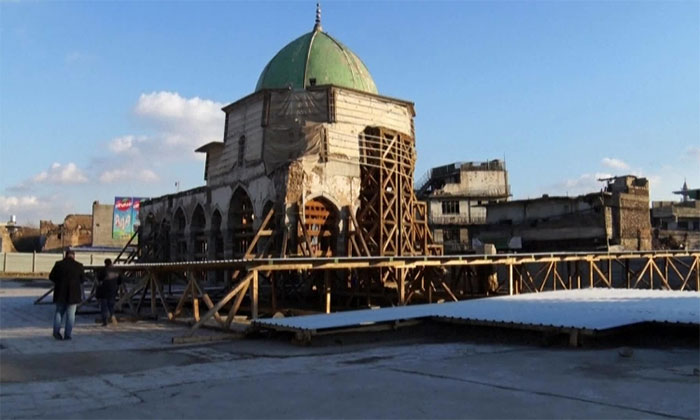On January 18, archaeologists announced the discovery of five rooms used for prayer and baptism at a site in northern Iraq.

Ruins of prayer and baptism rooms at a 900-year-old mosque in Iraq. (Video: AFP)
According to Khaireddine Nasser, director of the Department of Heritage and Antiquities of Nineveh Province, the rooms were discovered underground during the excavation of the Al-Nuri Mosque, which dates back to the 12th century in the city of Mosul, the capital of Nineveh Province, located about 400 km northwest of Baghdad, Iraq.
The mosque, along with its iconic leaning minaret, has been severely damaged by war but is currently being rebuilt.
The newly discovered ruins include a prayer room and four baptism rooms located approximately 6 meters underground and connected to each other. Each room is about 3.5 meters wide and 3 meters high, constructed of stone and plaster. Baptismal basins were also found there.
“This discovery once again highlights the archaeological and historical significance of the Al-Nuri Mosque,” Nasser emphasized.
The Al-Nuri Mosque was built in 1172, but much of the original structure was destroyed before it was reconstructed in 1942. Excavations of the old ruins are ongoing with support from UNESCO and the United Arab Emirates (UAE).
UNESCO raised over $100 million in 2019 as part of the initiative “Reviving the Spirit of Mosul,” with about half of that amount pledged by the UAE. The reconstruction work is expected to be completed by the end of 2023.


















































